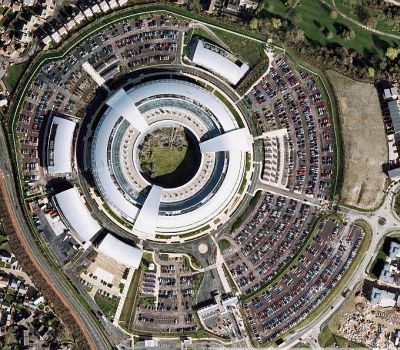Snowden: NSA Collects 200m Texts A Day And GCHQ Can See Them Too

GCHQ has access to NSA Dishfire database of texts and phone numbers, according to leaked documents
The National Security Agency (NSA) indiscriminately collects around 200 million text messages from around the world, and its database is accessible to GCHQ in Britain, according to the latest documents leaked by the whistleblower Edward Snowden.
According to The Guardian, a project known as ‘Dishwire’ collects the content and ‘metadata’, such as phone number and location information, from any SMS it can find, rather than those sent or received by existing surveillance targets.
NSA information
 These messages are stored and automatically analysed by a programme known as ‘Prefer’ which uses automated texts such as missed calls or those containing roaming charges to extract location information, contact patterns and financial transactions.
These messages are stored and automatically analysed by a programme known as ‘Prefer’ which uses automated texts such as missed calls or those containing roaming charges to extract location information, contact patterns and financial transactions.
According to a leaked June 2011 presentation made by the NSA entitled SMS Text Messages: A Goldmine to Exploit, the agency collected an average of 194 million texts a day during April of that year.
On a typical day, the NSA scrapes five million missed call alerts, 1.6 million border crossings, more than 110,000 names and more than 800,000 financial transactions. The NSA is also able to extract geolocation data from 76,000 texts per day through requests for directions, meeting information and itinerary texts from travel companies.
Pressure on Obama
Recent reports have suggested that NSA surveillance has only had a “minimal” impact on foiling terrorist plots and other matters of national security and the latest revelations are likely to increase pressure on US President Barack Obama, who is due to issue his response to the NSA review panel later today.
The panel has suggested that spy agencies should exercise a greater respect of foreigners’ privacy and that surveillance efforts against allied heads of states and diplomats should be reconsidered.
Crucially, US phone numbers are removed from the database, but UK and foreign numbers are not. This combined with the fact the NSA has allegedly been spying on British citizens as part of a secret deal agreed with British security officials in 2007, is also likely to increase scrutiny over the scale of surveillance of American allies and the UK’s involvement in the programmes.
GCHQ involvement
The leaked documents suggest that GCHQ has access to the NSA’s database, although British agencies are not able to see any US-related messages. Analysts are allowed to search the metadata to see which numbers had been contacting other numbers, but they are not permitted to search the content of these messages without a warrant.
An internal memo clearly defines what analysts are allowed to do and states that the significance of Dishfire is the untargeted nature of the information, which allows the GCHQ to find new targets. The agency’s own database only collects data from existing suspects.
Earlier this week, Vodafone wrote to the UK government asking for the right to be able to publish the number and type of surveillance requests it receives from all governments, similar to how US companies such as AT&T, Verizon and Google are able to do so in their bi-annual transparency reports.